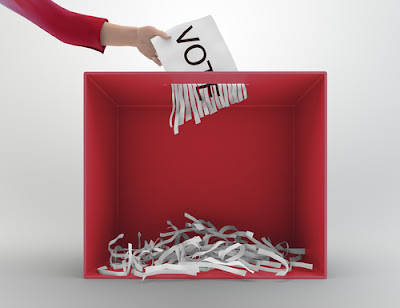u.s. supreme court decision on teenage strip-search victim
An significant decision - somewhat positive, somewhat negative - from the United States Supreme Court was just announced. I've followed this case with interest through the ACLU. I was encouraged that the Supreme Court agreed to hear the case, but the outcome - although partly positive - leaves a lot to be desired.
In a ruling of interest to educators, parents and students across the country, the Supreme Court ruled, 8 to 1, on Thursday that the strip search of a 13-year-old Arizona girl by school officials who were looking for prescription-strength drugs violated her constitutional rights.
The officials in Safford, Ariz., would have been justified in 2003 had they limited their search to the backpack and outer clothing of Savana Redding, who was in the eighth grade at the time, the court ruled. But in searching her undergarments, they went too far and violated her Fourth Amendment privacy rights, the justices said.
Had Savana been suspected of having illegal drugs that could have posed a far greater danger to herself and other students, the strip search, too, might have been justified, the majority said, in an opinion by Justice David H. Souter.
"In sum, what was missing from the suspected facts that pointed to Savana was any indication of danger to the students from the power of the drugs or their quantity, and any reason to suppose that Savana was carrying pills in her underwear," the court said. "We think that the combination of these deficiencies was fatal to finding the search reasonable."
In fact, no pills were found on Savana when her underwear was examined by two school officials, both women, who were acting on a tip passed along by another student.
. . .
Justice Clarence Thomas was the only member of the court to conclude that the strip search of Savana Redding did not violate the Fourth Amendment. He asserted that the majority's finding second-guesses the measures that educators take to maintain discipline "and ensure the health and safety of the students in their charge."
The majority said it meant to cast "no ill reflection" on the assistant principal, Kerry Wilson, who ordered the search at a time when there were incidents of students using alcohol and tobacco. "Parents are known to overreact to protect their children from danger, and a school official with responsibility for safety may tend to do the same," Justice Souter wrote.
But Justices John Paul Stevens and Ruth Bader Ginsburg did not agree, and would not have protected the officials from liability. Justice Ginsburg singled out the assistant principal, noting that he had made Savana sit on a chair outside his office for more than two hours in what Justice Ginsburg called a "humiliating situation" when the case was argued.
"At no point did he attempt to call her parent," Justice Ginsburg wrote on Thursday. "Abuse of authority of that order should not be shielded by official immunity."
During the April argument, Justice Ginsburg seemed taken aback by the circumstances of the case, particularly that Savana came under suspicion because of a "tip" to officials from a classmate. "And nothing is done to check her veracity, nothing is done to follow up on it at all," the justice observed.
Justice Stevens wrote on Thursday that "it does not require a constitutional scholar to conclude that a nude search of a 13-year-old child is an invasion of constitutional rights of some magnitude."

Comments
Post a Comment